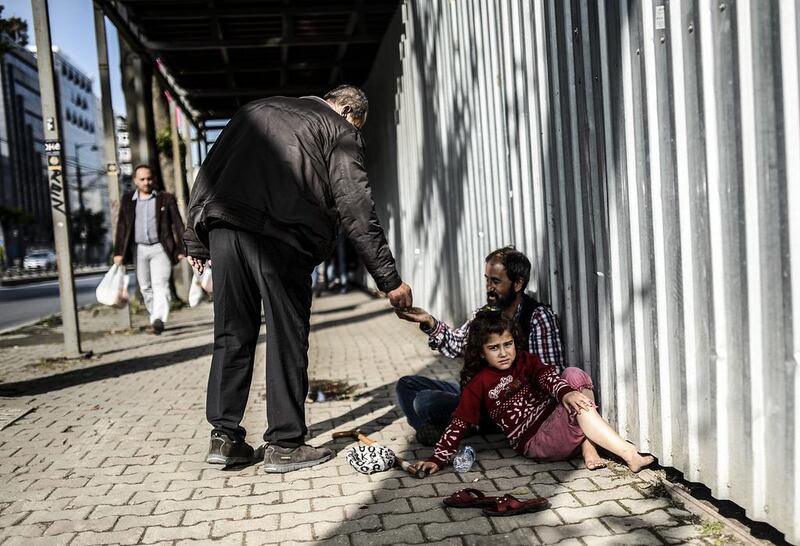ISTANBUL // Turkey is to grant work permits to Syrian refugees, Ankara said on Friday, in a key move that could allow Syrians to build more prosperous and stable lives in the country.
An announcement in Turkey’s official gazette said work permits would be granted to refugees who have fled to the country to escape the conflicts in their homeland.
It did not specify nationality, but the measure chiefly applies to the over 2.2 million Syrians who have fled the almost five-year war for the safety of Turkey, as well as some 300,000 Iraqis.
Refugees in Turkey are not allowed to work or be employed in the country without a valid work permit, the government decree published in the gazette states.
New arrivals will be able to apply for a work permit six months after they obtain a temporary protection status. The regulation also applies to those who have already resettled.
The number of refugees holding a work permit must not exceed 10 per cent of the total number of employees at any workplace.
Rights activists have long pressed Turkey to grant work permits to refugees – most of them working illegally and for very minimal wages – to allow them to build better lives in the country.
The measure is likely to be welcomed by European Union states as it could discourage refugees from crossing illegally into the EU in search of better lives.
Turkish deputy prime minister Numan Kurtulmus said on Monday that the move would “make life easier for Syrians” without putting a burden on employers.
Turkey has become a hub for refugees seeking to reach Europe and has on occasion been criticised by its Western partners for not doing enough to limit the numbers crossing the Aegean Sea.
In November Turkey and Brussels signed a plan to stem the flow. The plan provides Ankara with political concessions and €3 billion (Dh12bn) of EU cash in exchange for Turkish cooperation in tackling Europe’s worst refugee crisis since World War II.
Visiting Ankara on Monday, European Commission vice-president Frans Timmermans said the refugee flow remained “far too high.”
* Agence France-Presse





